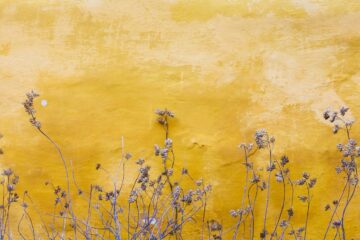The year I lived on the beaches of Fort Lauderdale,
in January, the city council issued a warning:
beware of frozen iguanas falling from the trees.
At 50 degrees Fahrenheit, an iguana’s metabolism
slows to the point of paralysis. Its limbs stiffen,
and a swift gust of wind can sweep it off a branch.
Do not cradle it in your arms like a forsaken infant,
though you may see your unfulfilled ambitions
reflected in its cold scales and glassed over eyes.
Do not bring it in your home and draw it a warm bath.
Do not crochet it a tiny woolen sweater. Do not mix it
a margarita and think it will empathize with your regrets.
The iguana can reanimate and attack you at any moment.
Even though they are not Florida natives, their instincts
have learned the bite or be bitten order of the land.
By law, the Florida conservationists cannot use evolution
to explain why iguanas cannot survive the cold, but they
can tell us God housed them in Latin America for a reason.
Iguanas are an invasive species, smuggled from their land
to be pets, gawked at in a glass box, inert and slimy under
a heat lamp like a tray of buffalo wings at a strip club buffet.
When they escaped, some ventured to the swamp lands
forming truces with the gators. Others ran to the golf resorts
amusing foreign businessmen scuttling after rolling grapes.
Though the iguanas adapted to the culture, they cannot
keep up with the changing climate. But the conservationists
must say this is God’s way of fixing our invasive species problem.
As the iguana carcasses pile on your lawn, remember, ice ages
happen every 10,000 years, and giant sloths, who ate avocados
and passed the pit whole, used to slowly roam Florida.
Chase Dimock is an Assistant Professor of English at College of the Canyons and the Managing Editor of As It Ought To Be Magazine. His poetry has been published in Waccamaw, Hot Metal Bridge, Saw Palm, Faultline, and New Mexico Review among others. He holds a PhD in Comparative Literature from the University of Illinois and his literary scholarship has appeared in College Literature, Western American Literature, Modern American Poetry, The Lambda Literary Review, and several edited anthologies. More of his work is available at chasedimock.com.

